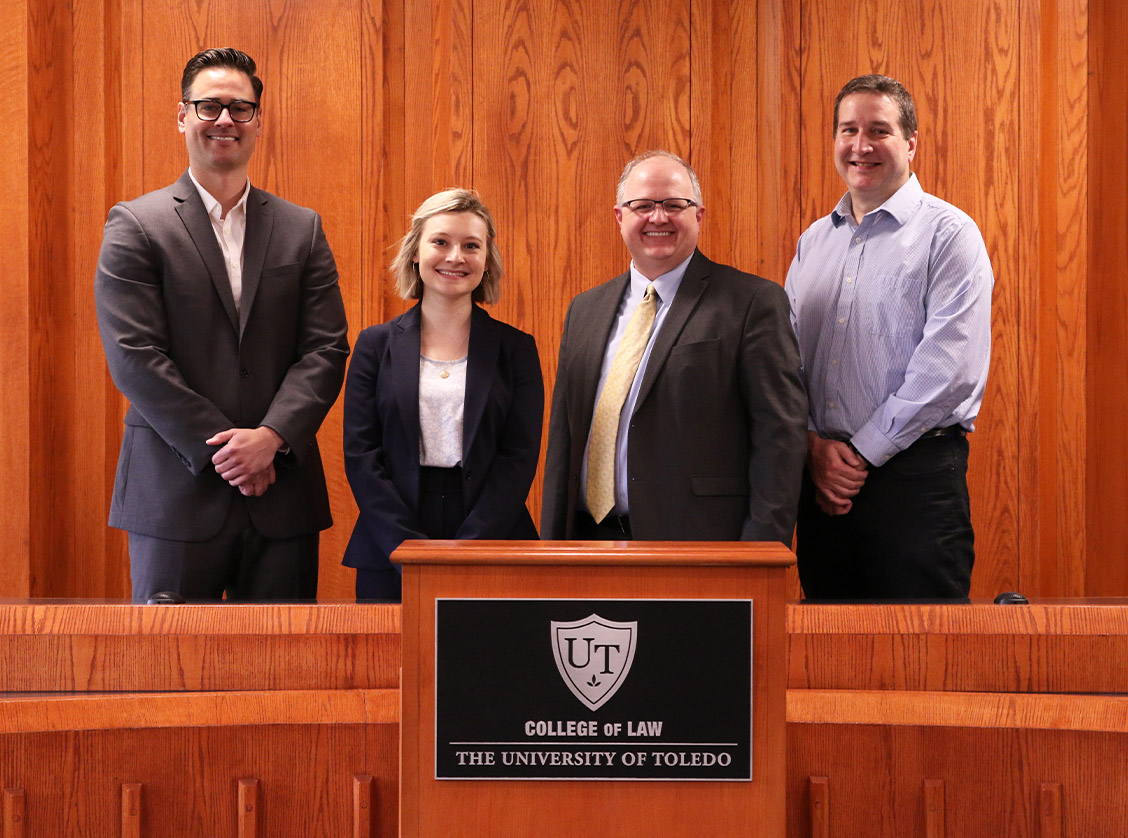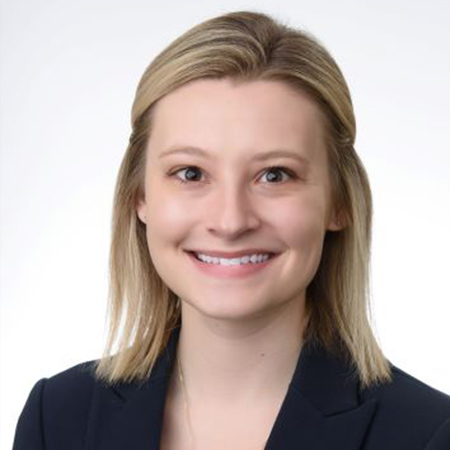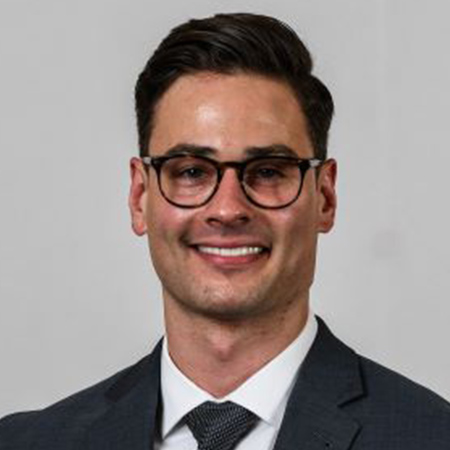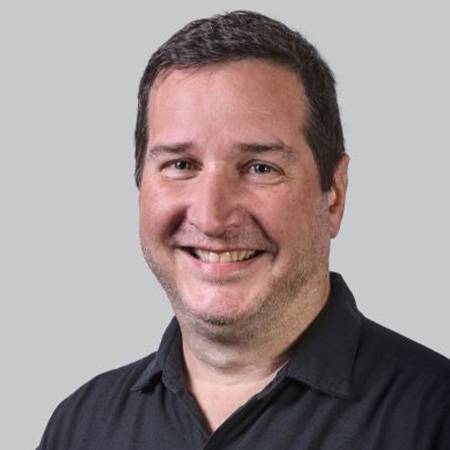Tax Clinic Helps Unrepresented Taxpayers During Virtual Settlement Events
September 23, 2022

The provision of legal services was changed at all levels due to the coronavirus pandemic. Lawyers changed the ways they work with clients, communicate with opposing parties and government agencies, and conduct judicial hearings. The Toledo Tax Controversy Clinic at the University of Toledo College of Law has experienced some difficulties with this new style of practice, but it has also embraced some of the benefits of expanded service areas and robust collaborative technologies.
Prior to the pandemic, the Toledo Tax Controversy Clinic had participated in collaborative events with the Internal Revenue Service Office of Chief Counsel to assist unrepresented taxpayers with pending U.S. Tax Court matters in settling their cases prior to trial. These Settlement Days reduce the judicial caseload, provide value to unrepresented clients, and improve the quality of cases going to trial. The opportunity for taxpayers to meet with clinic volunteer attorneys, IRS Counsel, and other IRS representatives face-to-face facilitates prompt resolution of matters in many cases.
A few months into the pandemic, when the U.S. Tax Court had recently announced that it would resume operations by conducting remote hearings, IRS Chief Counsel in Area 5 developed procedures to host an Area-Wide Virtual Settlement Event, which it repeated several times over the next 18 months. Facing a large backlog of cases, each virtual event spanned several weeks rather than a single day. While Area 5 covers several states in the west, IRS Counsel for Area 5 reached out to the Toledo Tax Controversy Clinic for help with so many taxpayers needing assistance. Toledo answered the call, assisting many taxpayers in three different virtual settlement events.
RESOLVING MATTERS
This Spring, Toledo Tax Controversy Clinic director Chris Bourell and student attorney Mark Hanusz logged on to a meeting hosted by IRS Counsel in Phoenix, Arizona. Joining the meeting from Denver, Colorado was the IRS Counsel assigned to the trial. The taxpayer herself was from a fourth state. She had been embroiled in a 5-year dispute over her 2016 federal income taxes which had finally been scheduled for a hearing with the U.S. Tax Court. “The ability for all of these parties to come together virtually was truly innovative,” Hanusz recalls, “It was a great experience in how legal work can be done with the aid of different technologies.”
The settlement conference began with a brief conversation with the IRS Counsel handling the trial describing the issues and then continued with a break-out session for the taxpayer to speak with the Toledo clinic attorneys. The taxpayer described her business operations and explained her proof. She discussed the lengthy administrative process that she had taken to arrive at this meeting, including several missteps by the taxpayer and the government, such as her sending additional documents to the auditor after the case had been closed and the IRS being unresponsive for many months. Bourell and Hanusz analyzed the voluminous evidence presented by the taxpayer, all of which was able to be shared securely through the meeting software.
The Clinic spoke with the taxpayer about her burden of proof and suggested a format and strategy for organizing and presenting her evidence. A complete reorganization of the taxpayer’s evidence which had been previously submitted to the IRS would be necessary to properly demonstrate her position and provide the basis for the court to hold in her favor.
Using a collaborative spreadsheet, optical character recognition of scanned documents, and Bates numbering, Mr. Bourell, Mr. Hanusz, and the taxpayer set to work, spending the next 90 minutes reworking all the supporting evidence. They clarified and reorganized hundreds of invoices, checks, and receipts, arriving at a detailed summary to provide to the IRS Counsel. After reviewing the revised summary, the IRS Counsel agreed that the taxpayer met her burden of proof, and closed the case with no additional tax, penalties, or interest due from the taxpayer. “Sometimes these settlement conferences work and sometimes they don’t. This time it worked very well, and the Clinic’s summary was the gold standard,” remarked the IRS Counsel. With the clinic’s assistance, the entire time to resolve the 5-year-old dispute took less than three hours.
A TRUSTED ADVOCATE
 The U.S. Tax Court is the only venue for taxpayers to challenge a proposed tax assessment
by the IRS prior to paying the assessment and seeking a refund. “It is not unusual
to find a number of taxpayers filing petitions to dispute their tax liabilities on
the basis that they cannot afford to pay, rather than challenging the validity of
the tax debt,” explains Director Bourell, “but there are different procedures to ensure
the IRS is not inappropriately collecting tax debts.” Dealing with different tax
policies and processes can be daunting for taxpayers, especially for those with limited
means to seek professional assistance. Even when IRS representatives and attorneys
explain the correct procedures, taxpayers often are suspicious and untrusting of the
information.
The U.S. Tax Court is the only venue for taxpayers to challenge a proposed tax assessment
by the IRS prior to paying the assessment and seeking a refund. “It is not unusual
to find a number of taxpayers filing petitions to dispute their tax liabilities on
the basis that they cannot afford to pay, rather than challenging the validity of
the tax debt,” explains Director Bourell, “but there are different procedures to ensure
the IRS is not inappropriately collecting tax debts.” Dealing with different tax
policies and processes can be daunting for taxpayers, especially for those with limited
means to seek professional assistance. Even when IRS representatives and attorneys
explain the correct procedures, taxpayers often are suspicious and untrusting of the
information.
In two different cases during the Virtual Settlement Events, the clinic worked with taxpayers who had incorrectly received tax credits that were later disallowed by the IRS. While the taxpayers understood that they could not claim the credits based on their own research or discussions with the IRS, they continued to pursue their Tax Court cases. One taxpayer explained that he had seen Tax Court case law involving situations where a taxpayer could not afford to pay his taxes. Director Bourell and student attorney Claire Griffin spoke with the taxpayer and convinced him that there was a better way to achieve his goals. Ms. Griffin says that she was surprised how quickly a trusted advocate could influence proper action by the taxpayer: “When we met with the taxpayer, he was ready to fight all the way to U.S. Tax Court and beyond if necessary. After establishing a relationship with him, he was willing to accept the information from us that he was unwilling to acknowledge previously.”
Ultimately, those taxpayers may need continued guidance from a professional. The clinic accepts some taxpayers in that situation as clients, helping navigate the complexities of the tax system to resolve their case. “We make it clear to the taxpayers in these situations that we and other clinics will still be here to advocate for them after the Tax Court hearing is closed,” says Mr. Bourell, “We continue to protect their rights, preserving an avenue back to Tax Court if the IRS will not resolve their tax collection case appropriately.”
ESTABLISHING A LEGAL FOUNDATION
 Not every case can be settled, and some taxpayers left the Virtual Settlement Event
continuing to litigate their matters. The clinic cannot always represent those taxpayers
in their litigation, but still provides a valuable service in organizing the taxpayer’s
legal position for the IRS Counsel and for the Tax Court Judge.
Not every case can be settled, and some taxpayers left the Virtual Settlement Event
continuing to litigate their matters. The clinic cannot always represent those taxpayers
in their litigation, but still provides a valuable service in organizing the taxpayer’s
legal position for the IRS Counsel and for the Tax Court Judge.
“Taxpayers should not be expected to know the intricacies of the tax law,” contends Mr. Bourell, “but they also cannot always hire someone to handle the matter – either due to their financial situation or due to the small nature of their case.” The clinic fills that gap in representation, even if merely providing legal arguments to supplement a taxpayer’s position. When a taxpayer feels that they have been wronged by the tax system, they do not always know how to articulate the harm in legal terms. Being able to formulate those legal arguments gives the IRS Counsel a clearer picture of the situation and an opportunity to respond. If the case proceeds to trial, the Tax Court Judge then will have a framework to analyze the case, and the taxpayer will hopefully be prepared to focus on the most pertinent facts.
Student attorney David Kaiser and Director Bourell handled an unsuccessful negotiation with the IRS Counsel for married taxpayers who were alleged to have additional income. The taxpayers transferred money between various accounts, leading the IRS to believe that there was more income than what the taxpayers reported on their tax return. The IRS Counsel was unpersuaded by the taxpayers’ evidence and testimony, forcing the case to trial for evaluation by the Tax Court Judge. “We were not able to convince the IRS Counsel that the taxpayer was correct, but the taxpayer was prepared for trial,” explains Mr. Kaiser, “He knew the relevant laws concerning the burden of proof and was better able to show both how the IRS did not meet its obligations with the data prepared as well as how his evidence and testimony supported his position.”
EXPANDING REPRESENTATION
Most of the clinic’s impact is felt closer to home in Northwest Ohio. Virtual Settlement Days allow the Toledo Tax Controversy Clinic to expand representation services to taxpayers. By leveraging technologies, the clinic is able to resolve cases across the country and create an efficient tax. Virtual Settlement Events provide an excellent opportunity for students at the University of Toledo College of Law how to work with clients and opposing counsel to promote tax justice for all.



